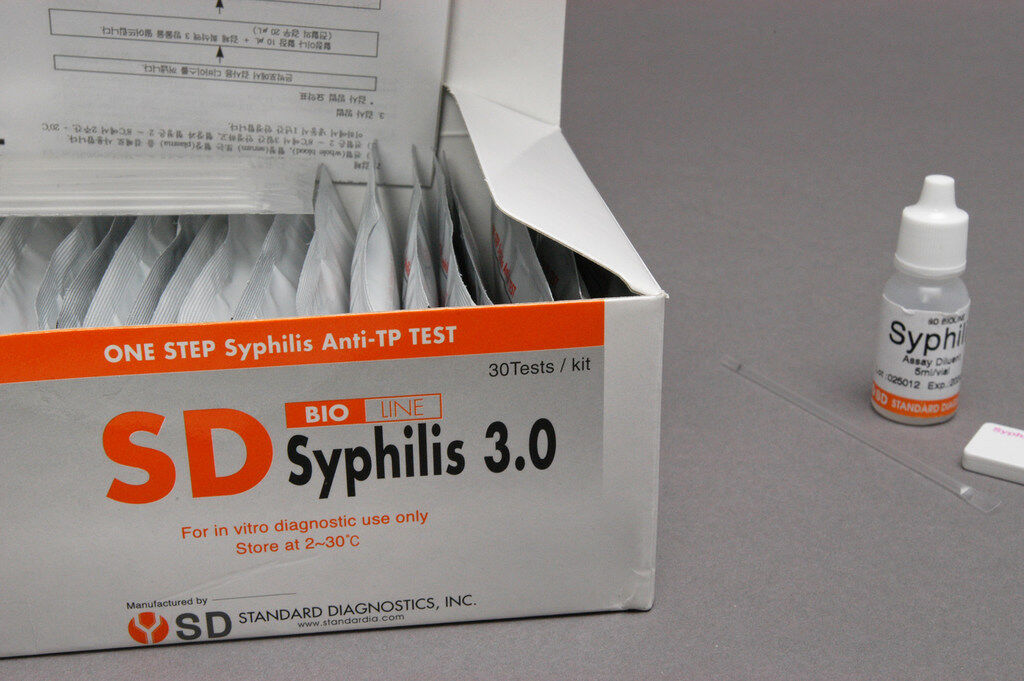WHO noted that countries are “lack of progress” in stopping curable sexually transmitted diseases and other sexually transmitted infections, and warned that if this problem is not addressed, these diseases will affect the health of adolescents, adults and unborn babies. Produce long-term adverse effects.
Peter Salama, WHO's Executive Director for Universal Health Coverage, said: “This is a wake-up call to ensure that everyone has access to the services they need to prevent and treat these debilitating disease."
The report covers the negative effects of four curable sexually transmitted infections, including chlamydia, gonorrhea, syphilis and trichomoniasis, including neurological and cardiovascular diseases, infertility, pregnancy complications, stillbirth and increased risk of HIV infection.
Melanie Taylor, an epidemiologist at the WHO Department of Reproductive Health and Research, said: “On average, one out of every 25 people in the world has at least one curative sexually transmitted infection, some of whom may have multiple infection."
Taylor pointed out that sexually transmitted infections create a "very high global burden." Since the last time WHO published data on curable sexually transmitted infections in 2012, “the level of infection has not decreased significantly”.

UNICEF Picture / Jan Mun
The report emphasizes that trichomoniasis is the most common of more than 376 million infections, with 156 million cases. Followed by chlamydial infections, there were 127 million cases, 87 million cases of gonorrhea, and 6.3 million cases of syphilis. It is estimated that the above-mentioned diseases caused a total of 200,000 stillbirths and neonatal deaths in 2016, which is one of the main causes of infant deaths.
Although bacterial infections can be treated and cured through widely used drugs, WHO warns that the recent shortage of benzathine in the world has made it more difficult to treat syphilis.
The resistance of gonorrhea to antimicrobial treatment is also becoming an increasingly serious health threat and may eventually lead to the inability to treat the disease.
We are also committed to providing all kinds of capsules for human health.
According to WHO, a total of more than 30 different bacteria, viruses and parasites can be transmitted through unsafe sexual contact. Some can also be transmitted through infected blood or blood products and dirty needles shared by drug users.
In addition to the four curable sexually transmitted infections covered in the report, four other sexually transmitted infections are currently incurable, including hepatitis B, herpes simplex virus (HSV or herpes), HIV (HIV) and human nipples. Tumor virus (HPV).
According to WHO, many sexually transmitted infections, including chlamydia, gonorrhea, hepatitis B, HIV and syphilis, can also be transmitted from the mother to the fetus or newborn during pregnancy and childbirth.
Common symptoms of sexually transmitted infections include vaginal discharge, urethral secretions, burning sensation during male urination, genital ulcers and abdominal pain, and many infections have no obvious symptoms. Symptoms or diseases caused by incurable viral infections can be alleviated by treatment.
WHO recommends sexual health education and advocates “correct and consistent use of condoms”. WHO believes that timely and affordable testing and treatment are also critical to reducing the burden of global sexually transmitted infections, while pregnant women should be screened for syphilis and HIV.


